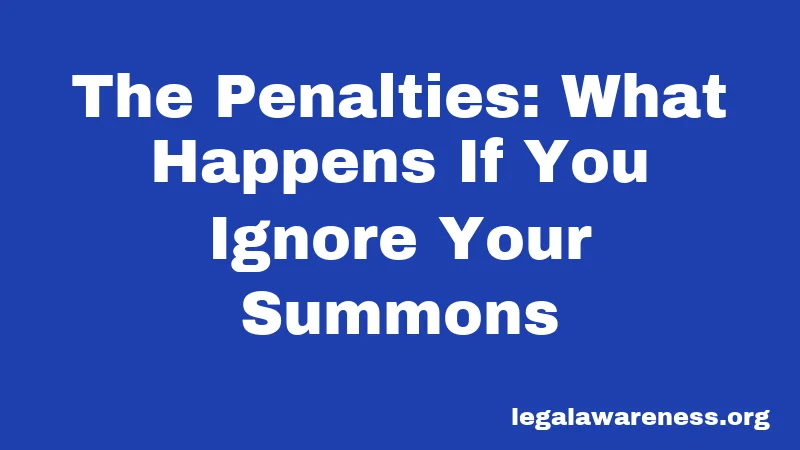Jury Duty Laws in Texas (2026): When You Get Called to Court
Most people have no idea what happens when they get that jury summons in the mail. They think they can just ignore it. Wrong move.
Here’s the deal: jury duty in Texas is mandatory. It’s not a polite suggestion. It’s a civic duty backed by real penalties. The good news? Once you understand the rules, it’s not nearly as scary as it seems.
What Is Jury Duty, Anyway?

Okay, let’s start simple. Jury duty means you’re called to court to help decide cases. You sit on a jury with other citizens. Together, you listen to evidence and decide who wins or who’s guilty.
This is actually really important. Right?
Your job is to be fair and impartial. That means no bias. No prejudice. Just honest judgment. It’s one of the most important parts of our legal system.
Who Can Serve on a Jury in Texas?
Not everyone gets picked for jury duty. You have to meet some basic requirements first.
You need to be at least 18 years old. You also have to be a United States citizen. Living in Texas is required, and you need to be a resident of the specific county where you’re summoned. Here’s the thing: you do NOT have to be registered to vote. That surprises a lot of people.
You also need to read and write English. You must be of sound mind and good moral character. Basically, you need to be able to understand what’s happening in court.
And here’s one that matters: you can’t have been convicted of a felony. Misdemeanor theft also disqualifies you. But if your civil rights have been restored, you might be okay.
Sound complicated? It’s really just making sure people can do the job fairly.
Who Gets a Free Pass? Exemptions Explained

Okay, so here’s where it gets interesting. Exemptions let you skip jury duty. You don’t have to serve, but you can if you want to.
You’re exempt if you’re over 75 years old. This changed recently—grand jurors can claim exemption at 70. Pretty straightforward.
If you have legal custody of kids under 12 and jury duty would leave them without proper supervision, you’re exempt. Same goes if you’re the primary caretaker of someone who can’t care for themselves. But here’s the catch: if you’re a healthcare worker doing that as your job, this doesn’t apply.
High school students are exempt. College students too, if they’re actually attending. Officers and employees of the Texas legislature get a free pass. And active military members deployed away from their home county don’t have to serve.
You can also claim exemption for medical conditions. But you need a doctor’s letter proving it prevents you from serving.
When You Absolutely Cannot Serve
Disqualifications are different from exemptions. These are deal-breakers. If you’re disqualified, you simply can’t serve.
Not being a citizen? Disqualified. Not living in the right county? Disqualified. Under 18? Disqualified.
Can’t read and write? Disqualified. Not of sound mind? You’ll need a doctor’s note, but yes, disqualified. Convicted of a felony or misdemeanor theft? Disqualified (unless your rights were restored).
Are you under legal accusation of a felony or theft right now? That disqualifies you too.
Here’s one you might miss: you can’t serve if you’ve already served as a juror for six days in county court within the last three months. In district court, the limit is six days in the past six months.
The Penalties: What Happens If You Ignore Your Summons

Let’s talk consequences. This is the part people need to hear.
If you get a jury summons and don’t show up without a valid excuse, you’re in trouble. The penalty is a fine ranging from $100 to $500. That’s real money.
But wait, it can get worse. Filing a false claim of exemption is also illegal. You could face the same fine. And honestly, courts take this seriously.
In extreme cases, you could face contempt of court charges. Or even a bench warrant for your arrest. We’re not trying to scare you, but this is real.
Hold on, this part is important: you MUST respond to your summons. You can respond in person, by mail, or online (most counties offer this now). The deadline is usually printed right on the summons. Follow it.
How Much Do You Get Paid?
So here’s the practical question: will you make money?
You’ll get paid. But it’s not a lot. For your first day (or part of your first day), you get at least $20. After that, you get at least $58 per day for the rest of your service.
This payment comes from your county. They’ll mail you a check usually within two to six weeks after you’re released from service.
Here’s the thing about employer pay: Texas does NOT require employers to pay you during jury duty. They have to let you go, but they don’t have to pay you. Some employers do anyway—that’s up to them. If they do pay you, they can require you to turn over your jury pay to them. Check your employee handbook.
What About Your Job?
Wondering if jury duty could cost you your job? Good question.
Your employer cannot fire you, threaten you, or punish you for serving on a jury. This is the law. It’s a Class B misdemeanor if they do. The court can also hold them in contempt.
If your employer wrongly fires you, you can get your job back. You can also get damages—minimum one year’s pay, maximum five years’ pay.
But here’s what you should know: your employer doesn’t have to pay you while you’re on jury duty. That’s different. You’re protected from retaliation, just not from unpaid time off.
What Actually Happens When You Show Up
Let me break down the process. You got a summons. You showed up. Now what?
First, you’ll go through security. Metal detectors, X-rays—just like an airport. Bring a book or your phone if you want something to do. This part involves a lot of waiting.
Next, you’ll fill out a questionnaire. It asks about your background, your job, any hardships. Then comes voir dire. (That’s French. It means “to speak the truth.”)
Lawyers and the judge will ask you questions. They want to know if you’re impartial. They’re checking if you can be fair. It’s not an attack on you. They’re just being thorough.
Here’s the good news: most people summoned don’t actually get selected. Two-thirds of prospective jurors go home after jury selection. Your duty ends fast.
But if you ARE selected? You’re on the jury. The judge will explain what you need to do. Follow instructions carefully.
Can You Get Out of Jury Duty?
Not sure what counts as a valid excuse? Let me break it down.
Claiming an exemption is your right. You don’t need permission or a reason. Just claim it on the summons form and send it back.
Asking to postpone is different. You’re not getting out—you’re rescheduling. Most courts will let you delay up to 60 days if you have a legitimate conflict. Planned vacation? Probably okay. You have to ask ahead of time though.
Requesting an excuse for hardship is also different from exemptions. If you don’t qualify for an automatic exemption, you can ask the judge to excuse you for personal hardship. The judge decides. This isn’t guaranteed. Courts typically don’t excuse people just for business reasons.
Lying on your summons? That’s a crime. Don’t do it.
Special Situations You Should Know
Ever been convicted of a felony? Here’s what you need to know: once your civil rights are fully restored, you can serve. Deferred adjudication probation counts as restoration too.
You’re under investigation for something? That might disqualify you until the charges are resolved or dismissed.
Military on active duty? You’re exempt if you’re deployed away from your county. But if you’re stationed nearby, you probably have to serve.
Language barrier? If you can’t understand English well enough to follow court proceedings, you’re disqualified. But you have to show up to claim this—court staff can’t excuse you remotely.
Responding to Your Summons: The Right Way
Okay, you got your summons. You need to respond. Here’s how.
Most Texas counties now offer online response portals. Check your summons for the website and your juror ID number. It’s faster and easier than mailing.
If you prefer old-school, mail works too. Fill out the form on the back of the summons. Check any disqualifications or exemptions you’re claiming. Sign it. Include your jury number. Mail it back by the deadline.
Some questions will be on a questionnaire. Answer honestly and completely. These answers are confidential. Lawyers see them, but the public doesn’t.
If you’re claiming a medical disqualification, attach a doctor’s letter. If you’re claiming you can’t read English, still show up—you’ll tell the judge in person.
Frequently Asked Questions
Can I be fired for serving on jury duty? No. It’s illegal. Your employer must let you serve. They don’t have to pay you, but they can’t punish you for going.
What if I have a work conflict on my jury date? Contact the court immediately. Explain your situation. You might get postponed to a later date (up to 60 days usually). But there’s no guarantee.
Do I have to serve if I’m asked during voir dire? Not necessarily. Lawyers can remove jurors for cause. You might also be dismissed if you admit bias or hardship during questioning.
How long will jury duty actually take? Jury selection can be one day or several days. If you’re selected, the trial could be days, weeks, or even longer. The judge will tell you the estimate.
Can I claim hardship because of my job? Texas courts typically don’t excuse jurors for economic hardship. But you can mention it to the judge during voir dire, and they might consider it.
Final Thoughts
Jury duty isn’t punishment. It’s how our justice system works. Real people decide real cases. That’s why your presence matters.
The laws are strict because this is serious. But they’re not complicated. You have rights. You have protections. You also have responsibilities.
If you get a summons, respond. Answer honestly. And if you don’t understand something, ask the court. They have staff there to help.
Now you know the basics. Stay informed, stay honest, and remember: jury duty is a civic responsibility. When in doubt, contact your local courthouse. That’s what they’re there for.
References
- Texas Courts Jury Service Information
- Texas Government Code § 62.102 – General Qualifications for Jury Service
- Texas Government Code § 62.106 – Exemptions from Jury Service
- Bexar County Jury Services
- Travis County Jury Duty Information
- Texas Civil Practices and Remedies Code Chapter 122 – Jury Duty Employment Protection
